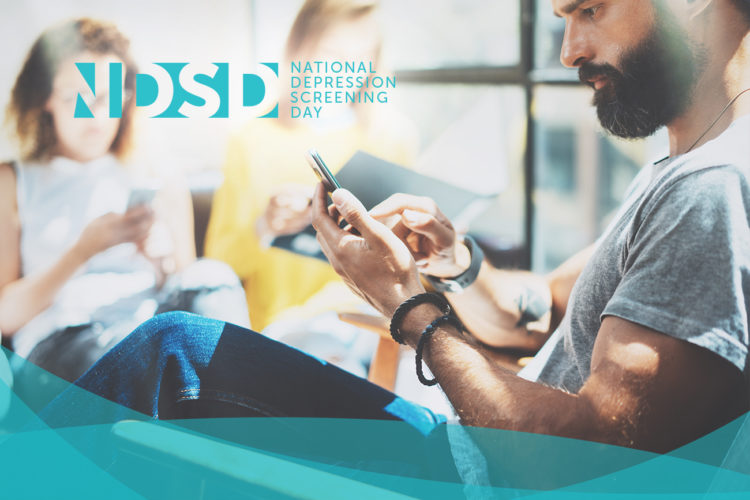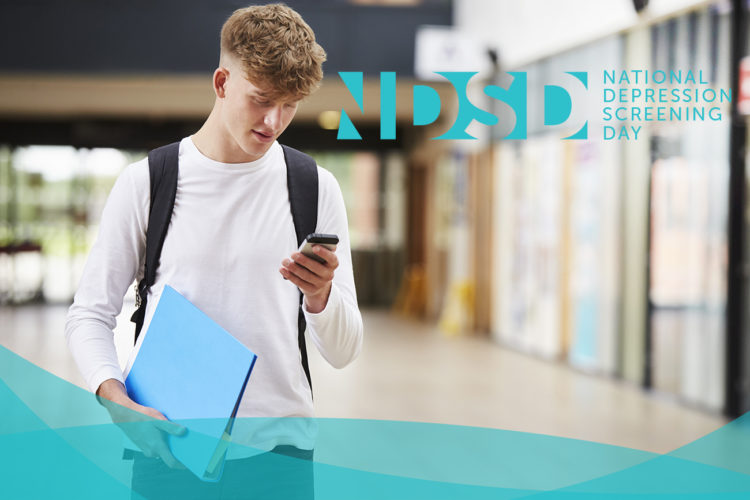What’s The Difference Between Sadness And Depression?
We experience an infinite amount of emotions in our life: happiness, fear, excitement, joy, confusion, sadness, to name just a few. Most of them are completely normal, even the ones that are uncomfortable or unpleasant. National Depression Screening Day reminds us to take care of ourselves, something we often overlook.
Sadness is an emotion we all feel and experience for any number of reasons. Perhaps you didn’t get that job you really wanted, or you had an argument with a friend, or a family member passed away – all these things can make us feel varying degrees of sadness. While feeling sad is not pleasant, most of the time is a completely normal reaction to the situation we’re experiencing.
But how do we know if we’re just sad, or if it’s something greater, something more serious? How do we tell the difference between sadness and depression?
National Depression Screening Day
During the week of October 7 to 13 2019, the Calgary Counselling Centre is hosting the 13th annual National Depression Screening Day (NDSD). NDSD is an annual reminder to check in with your mental health and to encourage anyone who needs it to get help.
In some ways, sadness and depression might feel and manifest the same way. When you’re sad or depressed, you may cry much more often than you normally would, you might feel like you don’t want to get out of bed, you want to be left alone and may have little energy. A big difference between being sad and being depressed is the length of time that these feelings last. Sadness often goes away or dissipates within a few days. An indication that you might be experiencing depression is if the feelings of sadness are lasting two weeks or more and you’re not seeing any improvement in how you feel.

Sadness Vs Depression?
In certain cases, sadness can last a bit longer, for example, if you are grieving the loss of someone you love. Major losses or life changes can prolong the feelings of sadness. This again can be a natural reaction to the experience, but feelings should subside as time progresses.
Another difference is that while sadness is normally brought on by a particular incident or experience, depression often doesn’t necessarily have an origin. You may not be depressed about a specific event or situation; you might not be able to pin-point why exactly you’re feeling the way that you are.
Depression often affects different areas of your life. Depression can come about regardless of where you are, who are with or any particular event in your life.
You can go through a lot of thoughts, feelings and physical symptoms when your experiencing depression. They include:
- Isolation and withdrawal from family and friends
- Thoughts of ending your life
- A lack of interest in activities you used to enjoy
- Fatigue and low energy
- Feelings of sadness, worthlessness, hopelessness, and anxiety
- Difficulty focusing or concentrating
- Insomnia or sleeping too much
- A low or excessive appetite

Whether You Think You Might Be Sad Or Depressed, It’s Always Best To Seek Help.
A good first step would be to talk to your doctor. They can help you determine whether what you are feeling is sadness, or something a bit more serious. Doctors can also help to figure out if your mood is being impacted by a physical issue. Many physical ailments can have psychological symptoms.
Be kind to yourself; make changes one small step at a time. If what you are experiencing is leaving you feeling exhausted with no motivation to leave your bed or speak to anyone, intentionally do one small thing each day that will move you in the direction of feeling better. Go for a walk outside even if you’re feeling tired. Try calling a friend even if it feels difficult. Try working on that hobby or activity you used to love even if it feels like you’re just going through the motions. Doing just one small thing a day can give you a sense of accomplishment.
If your mood just isn’t improving, get help and talk to a mental health professional, even if you’re unsure if you’re feeling sadness or depression. And don’t wait too long. Depression is highly treatable. In fact, it is the most treatable of all mental health problems and just like everything else in life, the sooner you get treatment, the better and faster the results.
Conclusion
This a free guest post by the Calgary Counselling Centre.
- Twitter: @yyc_counselling
- Facebook: @calgarycounsellingcentre
- Donate: https://calgarycounselling.com/get-involved

Blogging in Calgary.
Follow along on Facebook, Instagram, Twitter. Join the Calgary Discord Server!